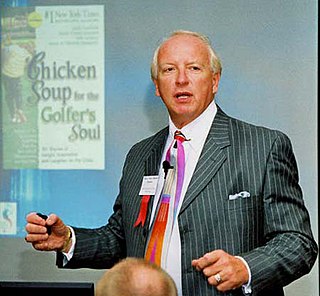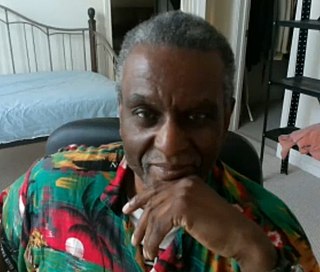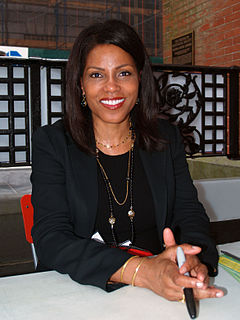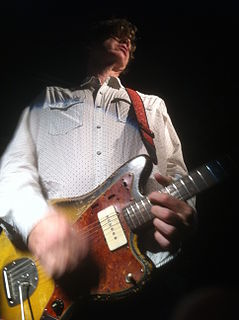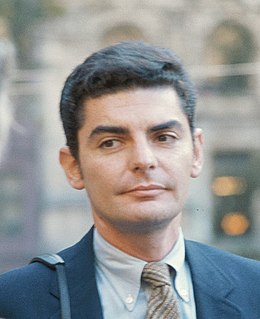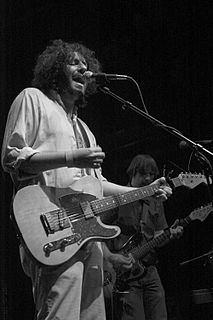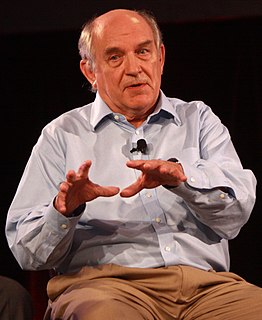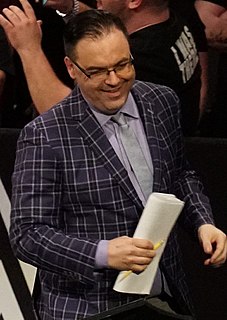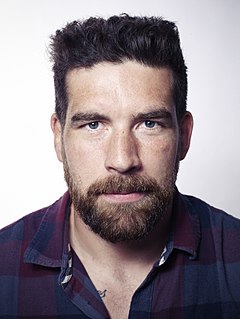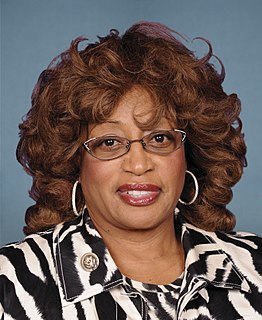Top 1200 Jim Crow Laws Quotes & Sayings - Page 2
Explore popular Jim Crow Laws quotes.
Last updated on November 16, 2024.
That's one of the biggest losses, I think, to African American families, is that people, once they left, they turned away from the South. They didn't look back, and they often didn't tell their children about it. They didn't want to talk about it. It was too painful, what they'd gone through and the caste system of the South, which was Jim Crow.
I don’t believe it is possible to transcend race in this country. Race is a factor in this society. The legacy of Jim Crow and slavery has not gone away. It is not an accident that African-Americans experience high crime rates, are poor, and have less wealth. It is a direct result of our racial history.
In studying food, you embrace everything. Food exposes the long, complex history of the South - slavery, Jim Crow segregation, class struggle, extreme hunger, sexism, and disenfranchisement. These issues are revealed through food encounters, and they contrast this with the pleasure and the inventiveness of Southern cuisine. Food is always at the heart of daily life in the South.
For the rest of their lives, [black men] can be denied the right to vote, automatically excluded from juries, and legally discriminated against in employment, housing, access to education and public benefits. So many of the old forms of discrimination that we supposedly left behind during the Jim Crow era are suddenly legal again once you've been branded a felon.
I have much more confidence in my ability, or any president or any leader's ability, to mobilize the American people around a multiyear, multibillion-dollar investment to help every child in poverty in this country than I am in being able to mobilize the country around providing a benefit specific to African Americans as a consequence of slavery and Jim Crow.
Those labeled felons may be denied the right to vote, are automatically excluded from juries, and may be legally discriminated against in employment, housing, access to education, public benefits, much like their grandparents or great grandparents may have been discriminated against during the Jim Crow era.
More than 2 million people found themselves behind bars at the turn of the twenty-first century, and millions more were relegated to the margins of mainstream society, banished to a political and social space not unlike Jim Crow, where discrimination in employment, housing, and access to education was perfectly legal, and where they could be denied the right to vote.
History is a sly boots, and for a generation of blacks that cannot identify with the frustrations of Jim Crow, and for whites who cannot understand the hard deal that faces working-class blacks, it is difficult to reconcile Hughes's reputation as a poet-hero with his topical verse and uncomplicated prose.
Pirate Captain Jim "Walk the plank," says Pirate Jim "But Captain Jim, I cannot swim." "Then you must steer us through the gale." "But Captain Jim, I cannot sail." "Then down with the galley slaves you go." "But Captain Jim, I cannot row." "Then you must be the pirate's clerk." "But Captain Jim, I cannot work.
Is Donald Trump a fascist? It's an interesting question that has generated insightful commentary over the past few months, with the best answers situating Trumpian illiberalism within America's long history of racial oppression, slavery, Jim Crow apartheid, and the ongoing backlash to the loss of white privilege.
I actually believe that some residue of discrimination would lessen, because it's my view that there is a certain percentage of the white population that stereotypes and makes assumptions about African Americans because they don't inject the history of slavery and Jim Crow into current incarceration rates, or crime rates, or poverty rates, or what have you.
There is more to the culture of cruelty than simply ethically challenged policies that benefit the rich and punish the poor, particularly children, there is also the emergence of a punishing state, a governing through crime youth complex, and the emergence of the school-to-prison pipeline as the new face of Jim Crow.
The new racism, like God, works in mysterious ways and is quite effective in maintaining white privilege. For example, instead of saying as they used to say during the Jim Crow era that they do not want us as neighbors, they say things nowadays such as 'I am concerned about crime, property values and schools.'
Whether we want to own up to it or not, the welfare state has done what Jim Crow, gross discrimination and poverty could not have done. It has contributed to the breakdown of the black family structure and has helped establish a set of values alien to traditional values of high moral standards, hard work and achievement.
As a southerner born after the epic events of the civil rights movement, I've always wondered how on earth people of good will could have conceivably lived with Jim Crow - with the daily degradations, the lynchings in plain sight, and, as the movement gathered force, with the fire hoses and the police dogs and the billy clubs.
The government can back up its tastes and beliefs with the police power. That is why it cannot be permitted tastes and beliefs. Most emphatically, it cannot be permitted to define one group as being privileged over another group of people. It was wrong in the days of Jim Crow; it is wrong in the days of affirmative action.
You cannot be responsible for Jim Crow. You can not be responsible for racism. This is much more a problem for the person exercising racism.You are confronted with the reality of racism when you go in the streets, when the eyes of others come upon you. [James] Baldwin goes back with you to all the experiences you went through and gives a name to them, and explains why it is like this.
Michelle Alexander's brave and bold new book paints a haunting picture in which dreary felon garb, post-prison joblessness, and loss of voting rights now do the stigmatizing work once done by colored-only water fountains and legally segregated schools. With dazzling candor, Alexander argues that we all pay the cost of the new Jim Crow.
Poor minorities live in a new age of Jim Crow, one in which the ravages of segregation, racism, poverty and dashed hopes are amplified by the forces of privatization, financialization, militarization and criminalization, fashioning a new architecture of punishment, massive human suffering and authoritarianism.
I think we've become blind in this country to the ways in which we've managed to reinvent a caste-like system here in the United States, one that functions in a manner that is as oppressive, in many respects, as the one that existed in South Africa under apartheid and that existed under Jim Crow here in the United States.
Many thought that the abolition of slavery, the end of Jim Crow, and the legislative progress of the Civil Rights Era, among other watershed moments, would have fundamentally done away with the racist structures that have long oppressed black people. However, we know that has been far from the case.
Laws, it is said, are for the protection of the people. It's unfortunate that there are no statistics on the number of lives that are clobbered yearly as a result of laws: outmoded laws; laws that found their way onto the books as a result of ignorance, hysteria or political haymaking; antilife laws; biased laws; laws that pretend that reality is fixed and nature is definable; laws that deny people the right to refuse protection. A survey such as that could keep a dozen dull sociologists out of mischief for months.



